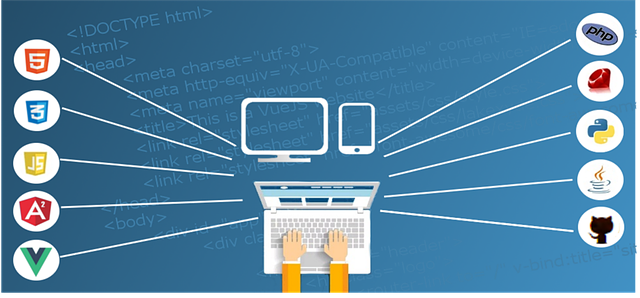5 Best Cross-Platform Mobile Development Frameworks in 2023

Mobile applications are a crucial part of every business in today’s fast-paced world. As people increasingly depend on their smartphones for internet access, businesses allocate more resources toward developing mobile apps. It’s no wonder why.
Nevertheless, creating a mobile app that functions on several platforms might take time and effort. A common answer to this issue is cross-platform mobile development frameworks, which let developers quickly construct apps that function well on several platforms.
This article will discuss the five best cross-platform mobile app development in 2023.
1. React Native
React Native is a popular cross-platform mobile development framework developed by Facebook. It uses JavaScript and React to create mobile apps on iOS and Android platforms. React Native offers a rich set of components and libraries that make it easy to create complex UIs and offer excellent performance and reliability.
One of the key benefits of React Native is that it allows developers to write code once and use it across different platforms. This reduces the time and effort required to develop mobile apps for multiple platforms. Additionally, React Native offers excellent support for third-party plugins and libraries, making it easy to integrate with other tools and services.
2. Xamarin
Microsoft purchased Xamarin, a cross-platform mobile development framework, in 2016. It allows developers to create mobile apps using C# and .NET and offers excellent performance and reliability. Xamarin is compatible with both iOS and Android platforms, and it provides a rich set of APIs that allow developers to access native features and capabilities.
One of the key benefits of Xamarin is that it offers excellent performance and reliability. This is because it uses a native approach to app development, meaning the resulting apps are fast and responsive. Additionally, Xamarin provides various tools and plugins that make integrating with other services and platforms easy.
3. Flutter
Google created the cross-platform Flutter mobile programming framework. It produces mobile apps for the iOS and Android operating systems using the Dart programming language. With its extensive selection of widgets and components, Flutter delivers great efficiency and dependability while making it simple to design intricate user interfaces.
One of the key benefits of Flutter app development is that it offers excellent performance and reliability. This is because it uses a native approach to app development, meaning the resulting apps are fast and responsive. Additionally, Flutter provides various tools and plugins that make integrating with other services and platforms easy.
4. Ionic
Ionic is a cross-platform mobile development framework that uses HTML, CSS, and JavaScript to create mobile apps. It offers a rich set of components and libraries that make it easy to create complex UIs and provides excellent performance and reliability. Ionic is compatible with both iOS and Android platforms, and it offers a range of plugins and tools that make it easy to integrate with other services and platforms.
One of the key benefits of Ionic is that it allows developers to create mobile apps using web technologies they are already familiar with. This reduces the learning curve and makes developing mobile apps for multiple platforms easier. Additionally, Ionic offers excellent support for third-party plugins and libraries, making integrating with other tools and services easy.
5. PhoneGap
PhoneGap is a cross-platform mobile app development framework that allows developers to create mobile apps using HTML, CSS, and JavaScript. It offers a range of plugins and tools that make it easy to access native features and capabilities, providing excellent performance and reliability. PhoneGap is compatible with both iOS and Android platforms, and it offers a range of tools and plugins that make it easy to integrate with other services and platforms.
One of the key benefits of PhoneGap is that it allows developers to create mobile apps using web technologies that they are already familiar with.
This reduces the learning curve and makes developing mobile apps for multiple platforms easier. Additionally, PhoneGap offers excellent support for third-party plugins and libraries, making it easy to integrate with other tools and services.
Conclusion
Cross-platform mobile development frameworks have become increasingly popular over the years, allowing developers to create mobile applications that work seamlessly across multiple platforms. The frameworks we discussed – React Native, Xamarin, Flutter, Ionic, and PhoneGap – are some of the best options for cross-platform mobile development in 2023, each with unique features and advantages.
React Native, Xamarin, and Flutter all use a native approach to app development, providing excellent performance and reliability while allowing developers to create complex UIs easily. On the other hand, Ionic and PhoneGap use web technologies such as HTML, CSS, and JavaScript, making them easier for web developers and AI to work with.
The choice of framework ultimately depends on the particular demands and specifications of the project. Using cross-platform mobile development frameworks is an efficient and effective way to design mobile apps that can function seamlessly across various platforms. This approach saves developers time and resources and guarantees excellent performance and stability. It’s a streamlined and effortless way to approach the development process, regardless of the framework employed.





